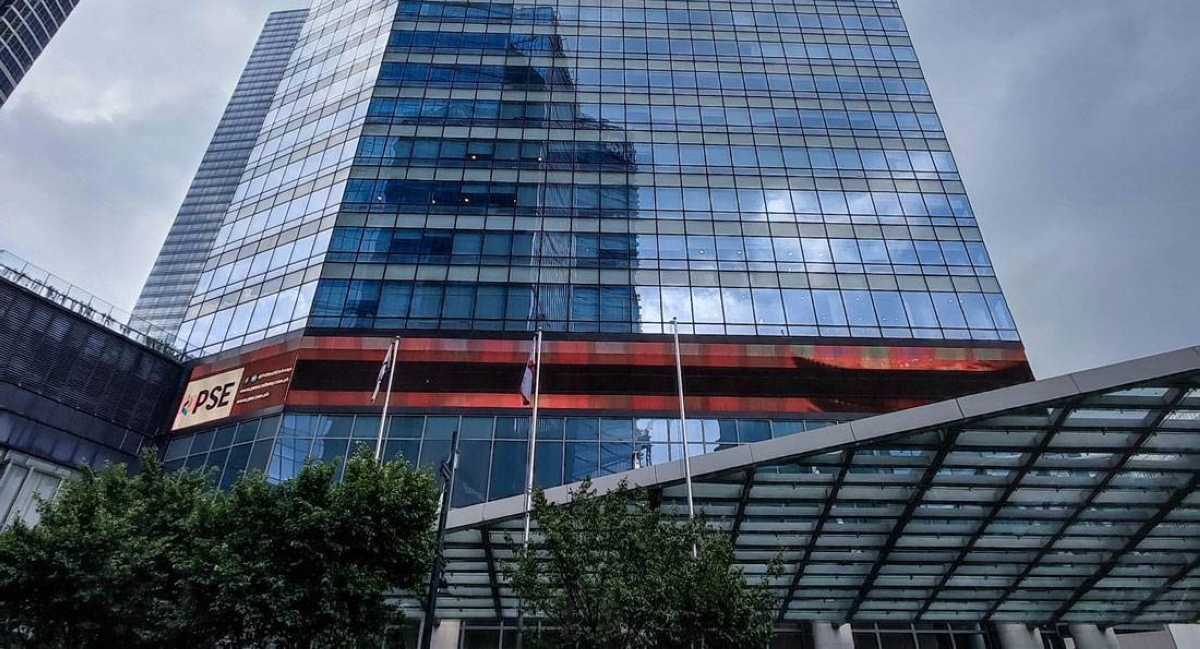THE stock market could head lower this week given lingering corruption issues, a weak peso and renewed global trade tensions, analysts said.
The benchmark Philippine Stock Exchange index (PSEi) closed at 6,037.79 last week, down 1.16 percent week on week and 7.52 percent lower since the start of the year.
Philstocks Financial Inc. research manager Japhet Tantiangco said the market’s trajectory remained “bearishly biased” as weak turnover and subdued sentiment reflected investor caution.
“The market is still on a downtrend as corruption issues and the peso’s weakening continue to weigh. Trading remains tepid, implying weak investor confidence,” Tantiangco said.
The market also remains undervalued, he added, with the PSEi’s price-to-earnings ratio (P/E) at 10.1 times — below its five-year historical average of 17.3 and the regional average of 18.6.
Get the latest news
delivered to your inbox
Sign up for The Manila Times newsletters
By signing up with an email address, I acknowledge that I have read and agree to the Terms of Service and Privacy Policy.
“As of the moment, the PSEi still has the lowest PE ratio among peers,” Tantiangco said. “While there are opportunities for bargain hunting, the local bourse may still move with a downward bias.”
“Bearish sentiment is expected to linger, fueled by concerns over the Philippines’ corruption issues and its impact on our economic growth outlook.”
Investors will again be watching the peso’s performance against the dollar and Tantiangco said, “a further depreciation… is expected to drag the local bourse.”
The currency, which fell to the $58:$1 level late last month, closed down by half a centavo at P58.24 on Friday.
Global developments could also weigh on sentiment after the United States imposed new tariffs on China, which Tantiangco said “are expected to aggravate market pessimism.”
Investors could also take their cues from the release of August overseas Filipino worker (OFW) remittance data on Wednesday.
Online stock brokerage firm 2TradeAsia.com, meanwhile, said global and domestic uncertainties were keeping investors on the sidelines even as selective opportunities arise.
“Global markets navigated heightened uncertainty… with gold surging past $4,000 per ounce for the first time as investors piled into safe havens amid persistent global inflation pressures and policy divergences,” it said of last week.
Minutes from the latest US Federal Reserve meeting showed a divided central bank, with a slim majority signaling two more rate cuts this year to support a softening labor market. However, 2TradeAsia said tariff-induced inflation could limit further easing.
“The October 28–29 Fed meeting will be key, where a 25-basis-point trim to 3.75 to 4 percent appears extremely likely,” it said. The brokerage also warned that continued fallout from the US government shutdown could inject additional volatility into markets.
Locally, 2TradeAsia said the planned P45-billion initial public offering (IPO) of Maynilad Water Services, Inc., the largest since 2021, could inject liquidity and highlight the resilience of the utility sector.
“Brace for some headline volatility come pricing (Oct. 20) as the mere size of the issue is material to market volume,” the brokerage said.
It added that Vietnam’s possible upgrade to secondary emerging market status by FTSE Russell in September 2026 could divert as much as $6 billion in foreign inflows away from the Philippines.
“The shift in regional risk premium is something that we have flagged in our past reports, and while the domestic story should still hold overall, near-term alpha at home might remain limited,” 2TradeAsia said.
The brokerage advised investors to focus on defensive and high-conviction plays such as gold mining, real estate investment trusts and income-generating stocks, saying that “staying power above 6K (the 6,000 level) might rouse dormant contrarian spirits.”

